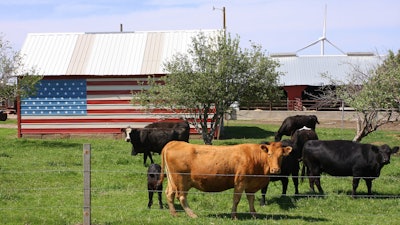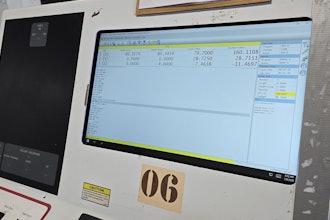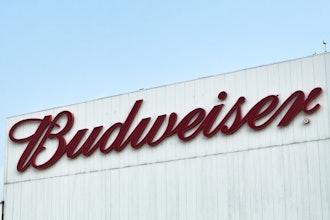
in meshing global demands for protein with a pressing need to do more with less environmental impact, Cargill is launching BeefUp Sustainability, an initiative committed to achieving a 30 percent greenhouse gas (GHG) intensity reduction across its North American beef supply chain by 2030.
The opt-in initiative will reduce GHG emissions throughout Cargill's beef supply chain from a 2017 baseline, measured on a per pound of product basis. BeefUp Sustainability is designed to engage producers and customers, focusing on four key areas: grazing management, feed production, innovation and food waste reduction.
"This initiative builds on the strong environmental stewardship work already led by farmers and ranchers," said Jon Nash, who leads Cargill's North American protein business. "Cargill is creating connections across the entire North American beef supply chain. Together, we can expand current sustainable agricultural practices to make a meaningful difference."
Innovation within the North American beef industry has led to improved sustainability over the life cycle of cattle. Today, U.S. farmers and ranchers produce 18 percent of the world's beef with only eight percent of the world's cattle. In fact, according the Food and Agriculture Organization of the United Nations, the North American beef supply chain is already more than 35 percent more efficient from a GHG perspective than the global average.
BeefUp Sustainability incorporates farmer and rancher feedback gathered through previous projects such as the Canadian Beef Sustainability Plot, on-site visits with key stakeholders and producer panels.
As an initial step in the BeefUp Sustainability initiative, Cargill will expand its partnership with The Nature Conservancy (TNC). Already, Cargill and TNC are collaborating on programs such as the Central Nebraska Irrigation Project, which is working to save 2.4 billion gallons of irrigation water over three years — equivalent to the water used by roughly 7,200 households.
Over the next three years, Cargill and TNC will work hand-in-hand with farmers and ranchers to demonstrate how grazing management planning and adaptive management improves sustainability outcomes related to soil, carbon storage, vegetation, wildlife habitat, water and other ecological parameters. These practices have also been shown to help producers be more resilient during extreme weather events.
In addition, Cargill is sponsoring the Yield Lab Institute's Manure Innovation Challenge as an early step in the BeefUp Sustainability initiative. The challenge will connect start-ups and companies to create solutions that capture the value from manure-based nutrients, fiber and energy, bringing them to market while creating on farm profitability.






















